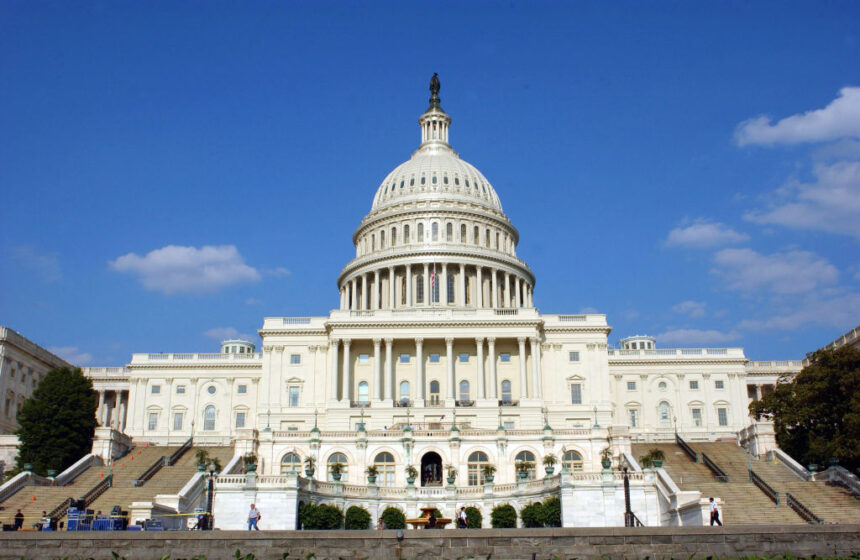Attention toward pharmacy benefit managers (PBM) — and their role in high drug prices — is heating up in Congress and both sides of the aisle appear ready to act.
This week, Senate Committee on Health, Education, Labor and Pensions leaders Sen. Bernie Sanders, (I-Vt.), and Sen. Bill Cassidy, (R-La.), introduced a package that would improve transparency among the so-called healthcare middlemen.
The bipartisan proposal includes provisions that would allow generic drugmakers to put their products on the market sooner and enforce reforms on PBMs.
In a joint statement, Sanders and Cassidy touted the bipartisan nature of the package as well as its intentions to reign in the high healthcare costs faced by patients nationwide.
“We are happy to announce that we’ve come to an agreement to consider critical pieces of legislation to reform pharmacy benefit managers and expand the availability of low-cost generic drugs through the HELP Committee,” they said.
The package includes four bills. The first, the Pharmacy Benefit Manager Reform Act, would seek to strengthen oversight and transparency for PBMs by mandating that they send 100% of the rebates they receive from drugmakers to health insurers.
Another bill would seek to expand access to low-cost generic drugs by decreasing incentives that generic drugmakers have to delay putting their products on the market.
A third would revamp laws around orphan drug exclusivities, while the last would improve oversight of the Food and Drug Administration’s citizen petition process, as pharma companies often use these petitions to delay generic drugs from getting on the market.
Sanders and Cassidy plan to hold an official markup of the legislation on Tuesday, May 2.
Looking out at a sharply divided Congress, the probability of passing sweeping health policies is low. However, it appears that the bipartisan support garnered by drug pricing and PBM measures could increase the chances that at least some of the provisions turn into law.
“I don’t know that these will all become one single bill, but I think there are a lot of policies we’re going to pursue and we really hope to see a majority of this or all of it signed into law,” said Rep. Brett Guthrie (R-Ky.), chair of the House Energy and Commerce Health Subcommittee, according to Roll Call.
Still, despite the optimism on Capitol Hill, the proposals are facing pushback from PBM industry groups, including one of the most vocal, the Pharmaceutical Care Management Association (PCMA).
At its annual policy forum Tuesday, PCMA president and CEO JC Scott argued that the recent congressional hearings and proposals are “based on a foundation that fundamentally misconstrues” the work PBMs conduct on behalf of small and large employers. Scott cited public programs like Medicare Part D as being supported by the work done by PBMs that results in access to affordable prescription drugs.
“While we should absolutely focus on ensuring fewer patients fall through the cracks when it comes to affordability and access, we can’t lose sight of the fact that our system is working for so many others,” Scott continued. “[W]e run the risk of advancing legislation and regulation that undermines the health care system instead of improving it.”
As a response to the legislative heat-up in Congress, PCMA recently rolled out a consumer campaign aiming to drive home the argument that PBMs actually support lower drug costs.
However, policymakers appear resolute in their support for reform among PBMs.
Sen. Ron Wyden (D-Ore.) noted in a recent hearing that it’s become more apparent that PBMs are using their “data, market power and know-how” to keep prices high and “pad their profits,” instead of sharing those benefits with consumers and the Medicare program.
“I believe this is an industry that is going in the wrong direction and that’s having a big impact on the prices Americans are paying at the pharmacy counter,” he continued.
While the subject of PBMs may come off as arcane and wonky to some, the general public appears to have formed an opinion on these entities and its largely unfavorable.
A recent poll out of the National Community Pharmacists Association (NCPA) found that up to 80% of respondents said they were concerned that PBMs were keeping the discounts on drugs they negotiate rather than passing that money back to consumers.
“When you explain to voters the dominant role that PBMs play in the prescription drug market, and the outsized control they have over patients and their healthcare providers, they are very concerned,” NCPA CEO Douglas Hoey said in a statement.







